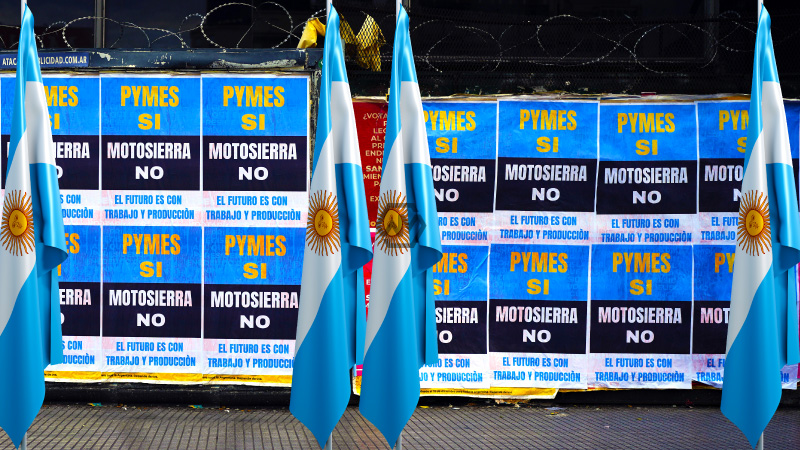- On Sunday, Argentina will hold its general election amidst the worst economic crisis the nation has seen in 20 years.
- The outcome of the vote is anticipated to have an effect on its markets and political direction.
- No clear winner is anticipated by pollsters.
On Sunday, Argentina will hold its general election amidst the worst economic crisis the nation has seen in 20 years. Argentina is a significant exporter of grains with substantial reserves of shale gas and lithium.
The outcome of the vote is anticipated to have an effect on its markets, trade relations with China and Brazil, and political direction. It is anticipated that conservative Patricia Bullrich, libertarian economist Javier Milei, and centrist Peronist Economy Minister Sergio Massa will split the vote.
Economic crisis
Angry voters, who are sick of the 138% inflation rate and the fact that more than two-fifths of the population live in poverty, have thrown their support behind Milei, who has promised to “chainsaw” the current political and economic system.
Recalling Jair Bolsonaro and Donald Trump, Milei, a former TV pundit, surprised everyone by winning the August open primary, with Massa and Bullrich trailing closely behind.
No clear winner is anticipated by pollsters. To avoid a runoff election on November 19, a candidate must receive more than 45% of the vote or 40% and a 10-point lead.
Regardless of the outcome, they will have to contend with an economy that is barely hanging on, depleted reserves at central banks, an impending recession following a severe drought, and a $44 billion program that has the International Monetary Fund (IMF) quivering.
Despite overseeing inflation reaching triple digits for the first time since 1991, Massa is still in the running, while Milei has surged sharply and promised shock therapy to turn around the economy.



